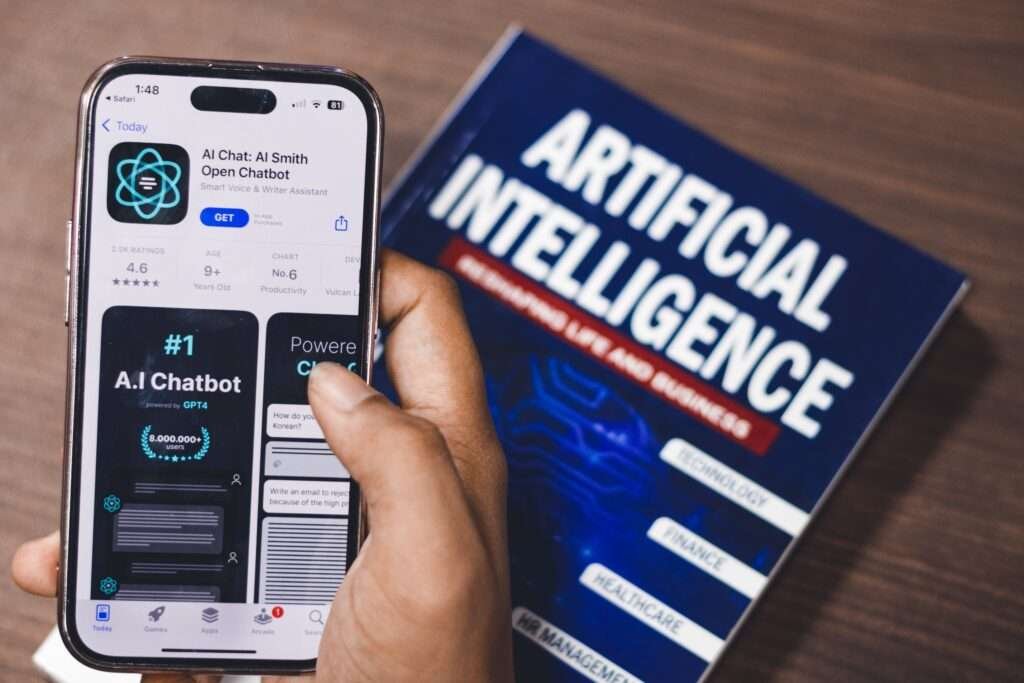“AI in Healthcare: Revolutionizing Patient Care with Intelligent Solutions”
Taking a Look Ahead: How AI Is Changing Patient Care in the Medical Field

Unlocking AI’s Potential in the Medical Field
Artificial Intelligence (AI) is changing patient care and the healthcare services landscape in a time of rapid technology advancement. AI’s intelligent solutions are enabling previously unheard-of breakthroughs in the medical area, from diagnosis to therapy.
AI’s Power: Revolutionizing Diagnosis and Treatment
AI in healthcare is a game-changer, not just a trendy term. Massive volumes of medical data are quickly and reliably analyzed by AI thanks to complex algorithms and machine learning. This results in quicker and more accurate diagnosis, giving medical practitioners the ability to create treatment programs with unparalleled accuracy.
Improving Healthcare Process Efficiency

AI does more than merely diagnose; it also optimizes healthcare procedures. AI boosts efficiency in a variety of areas, including administrative chores and medical data management. This not only saves time for healthcare personnel, but it also improves the patient experience.
Intelligent solutions for personalized patient care.
Individualized Treatment Plans
One of the most significant contributions of AI to healthcare is its capacity to give individualized treatments. AI assists in designing treatment programs that are personalized to each patient’s exact needs by taking into account his or her unique genetic makeup and medical history. This tailored strategy leads to more effective therapies and better patient outcomes.
Empowering Patients through Education.
AI is not just revolutionizing the way healthcare professionals work; it is also empowering patients. Intelligent solutions provide patients with comprehensive health information, allowing them to make informed decisions regarding their health. This transition to patient-centered care promotes a collaborative and informed healthcare ecosystem.
Overcoming Challenges with AI Adoption
Navigating the Path of Integration
While AI has enormous potential in healthcare, widespread use presents problems. Integrating AI into existing healthcare systems takes considerable design and attention. Addressing issues of data security, ethical concerns, and ensuring sufficient training for healthcare personnel are critical steps toward addressing these challenges.
The Future of Healthcare: A Synergy between Human Touch and Technological Innovation

As we navigate the changing landscape of healthcare, it is critical to remember that AI is not replacing human expertise, but rather supplementing it. The combination of human touch and technical innovation moves us toward a future in which patient care is more precise, efficient, and caring.
In conclusion.
AI in healthcare is more than just a technological marvel; it is a revolutionary force with the potential to radically alter patient care. From cognitive diagnostics to individualized treatments, the integration of AI ushers in a new age in healthcare. Embracing these developments promises a future in which healthcare is more than just treating ailments; it is also about improving lives.
FAQs
Question 1: What function does artificial intelligence play in patient care?
A1: Artificial intelligence plays an important role in patient care by improving diagnostic accuracy, easing administrative operations, and delivering individualized treatment recommendations. It helps healthcare practitioners provide more precise and efficient care.
Question 2: How does AI improve diagnostic procedures?
A2: Artificial intelligence (AI) enhances diagnostic processes by quickly analyzing large datasets, recognizing trends, and providing accurate insights. This not only accelerates the diagnostic step but also minimizes the margin of error, resulting in more accurate and quick diagnoses.
Question 3: Can AI actually offer tailored treatment plans?
A3: Yes, AI excels at generating personalized treatment strategies. AI tailors therapy solutions to each patient’s needs by taking into account their unique medical history and genetic makeup. This tailored strategy leads to more effective therapies and better outcomes.
Question 4: What are the obstacles associated with integrating AI into healthcare systems?
A4: Integrating AI into healthcare systems raises worries about data security, ethical considerations, and the necessity for suitable training for healthcare personnel. Overcoming these problems necessitates a smart and thoughtful approach.
Question 5: Is artificial intelligence (AI) replacing human involvement in patient care?
A5: No, AI does not replace human engagement; rather, it complements it. The combination of AI with human expertise results in a more thorough, precise, and empathetic approach to medical treatment. AI is a powerful tool for augmenting the capabilities of healthcare workers.
Question 6: How does AI aid patients in healthcare?
A6: AI in healthcare benefits patients by providing access to complete health information, individualized treatment regimens, and increasing involvement in their care. AI enables patients to make informed health decisions, resulting in a more collaborative healthcare environment.
Question 7: What does the future hold for artificial intelligence in healthcare?
A7: With ongoing technological developments, the future of AI in healthcare looks optimistic. As AI becomes more integrated into healthcare systems, we may expect to see even better diagnostics, treatments, and patient outcomes.







